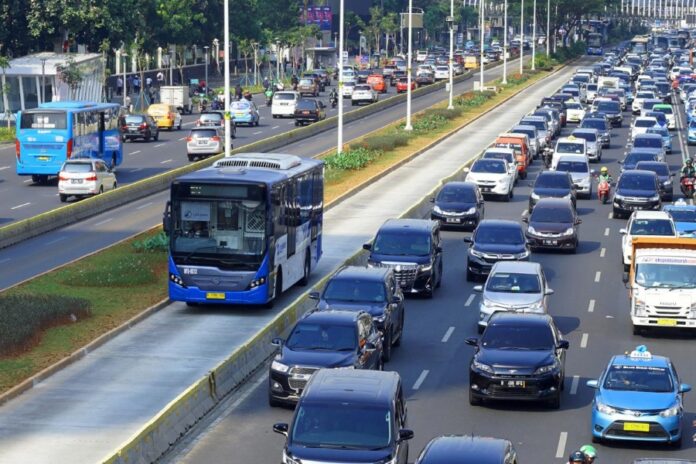A recent study by Thaba, S. C. (2025) titled “Possibilities of sustainable transport in the City of Johannesburg (CoJ) in South Africa” published in Proceedings of the International Conference on Industrial Engineering and Operations Management shows that the major challenges hindering sustainable transport include poverty, unemployment, and high crime rates.
“
Poverty, unemployment, and crime hinder sustainable transport in Johannesburg, requiring renewable energy and socio-economic reforms.– Thaba, S. C. 2025
The article delves into the prospects of establishing sustainable transport in Johannesburg, South Africa. It examines both the challenges and opportunities associated with creating a transport system that is eco-friendly, reliable, affordable, and safe for both people and the environment. Through exploratory research, the study assesses the current state of transportation in South Africa, identifying key obstacles to progress. These include overpopulation, socio-economic challenges such as poverty and unemployment, and high crime rates within the city. The article highlights initiatives by the Department of Transport (DoT) aimed at providing effective and integrated transport services. These efforts include promoting the use of clean fuels such as natural gas and biofuels. Furthermore, the study underscores the importance of integrated planning strategies, increased investment in renewable energy, and addressing underlying socio-economic issues to achieve a sustainable transport system in Johannesburg.
How the Study was Conducted
The author employed descriptive research; this method was used to describe and understand the current status of sustainable transport in Johannesburg. It involved collecting data and information to describe “what exists” with respect to variables or conditions in the situation.The author also employed exploratory research; this method was chosen due to the early development of literature on sustainable transport in South Africa. It aimed to lay the groundwork for future studies and to understand more about the idea of sustainable transport. The study focused on the experiences of the City of Johannesburg (CoJ). Data was collected using observation methods, including attending conference seminars and workshops on transport to observe and take notes. The research relied on qualitative data, where collected information was described, discussed, and evaluated to come up with findings and recommendations.
What the Author Found
The author found that the major challenges hindering sustainable transport include poverty, unemployment, and high crime rates. These socio-economic issues make it difficult to implement sustainable transport solutions effectively. The study also posits that there is a significant potential for using renewable energy sources like biofuels and biogas to replace fossil fuels in the transport sector. However, the production of biofuels is currently at a very small scale, and most of the manufacturers are small and medium-sized enterprises (SMMEs) that are unlicensed. The transport sector needs to focus on enterprise and supplier development to create sustainable job opportunities. This includes supporting the production and use of renewable energy sources within the transport sector.
Why is this important?
Environmental Impact: Sustainable transport reduces reliance on fossil fuels, which helps mitigate climate change and environmental degradation. This is crucial for a city like Johannesburg, which faces significant pollution and environmental challenges.
Socio-Economic Benefits: By focusing on renewable energy and enterprise development, the study highlights ways to create job opportunities and reduce poverty. This is particularly important in Johannesburg, where high unemployment and poverty rates are major concerns.
Health and Safety: Sustainable transport systems can improve public health by reducing air pollution and promoting active modes of transport like cycling and walking. Additionally, addressing safety concerns for cyclists and pedestrians can make the city more livable.
Economic Growth: Investing in sustainable transport can boost economic growth by improving mobility, reducing traffic congestion, and supporting local businesses involved in renewable energy production.
Future Planning: The study provides a framework for future research and policy development, helping to guide the city towards a more sustainable and resilient transport system.
What the Author Recommended
- The author recommends that the transport sector should shift its focus from merely providing transport services to addressing poverty and unemployment through sustainable enterprise and supplier development.
- There should be a strong push towards using renewable energy sources, such as biofuels and biogas, to replace fossil fuels in the transport sector. This can help reduce environmental impact and promote sustainability.
- The study advocates support for small and medium-sized enterprises (SMMEs) involved in the production of renewable energy should be increased. This can create job opportunities and stimulate economic growth within local communities.
- Stakeholders, including government, the private sector, and higher education institutions, should collaborate to develop a sound value chain for renewable energy. This can ensure a sustainable market for renewable energy within Johannesburg.
- In addition, the author emphasizes there should be integrated planning strategies that consider socio-economic challenges and aim to create a sustainable transport system that benefits all citizens.
In conclusion, achieving sustainable transport in Johannesburg requires addressing deeply rooted socio-economic challenges while leveraging renewable energy and innovative planning strategies. By fostering collaboration among stakeholders and investing in enterprise development, the city can create a transport system that is environmentally friendly, economically viable, and socially inclusive. This approach not only enhances mobility but also contributes to poverty alleviation, job creation, and long-term urban resilience. With the right policies and initiatives, Johannesburg has the potential to become a model for sustainable urban transport in Africa.
















 The African Research (AR) Index is a comprehensive scholarly directory and database focused explicitly on journal publishers that publish and disseminate African research.
The African Research (AR) Index is a comprehensive scholarly directory and database focused explicitly on journal publishers that publish and disseminate African research.

